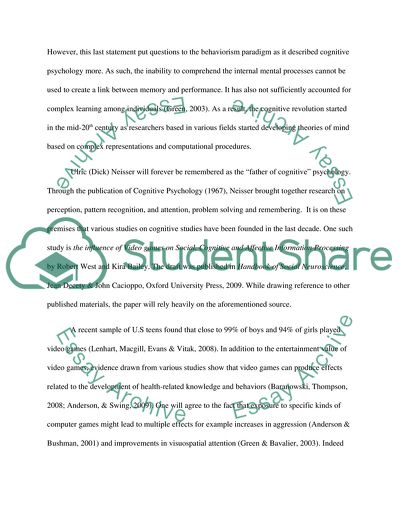Cite this document
(The History of Cognitive Psychology Essay Example | Topics and Well Written Essays - 1250 words, n.d.)
The History of Cognitive Psychology Essay Example | Topics and Well Written Essays - 1250 words. https://studentshare.org/psychology/1823955-examine-the-impact-on-cognitive-psychology-made-by-one-influential-study-published-in-the-last-decade
The History of Cognitive Psychology Essay Example | Topics and Well Written Essays - 1250 words. https://studentshare.org/psychology/1823955-examine-the-impact-on-cognitive-psychology-made-by-one-influential-study-published-in-the-last-decade
(The History of Cognitive Psychology Essay Example | Topics and Well Written Essays - 1250 Words)
The History of Cognitive Psychology Essay Example | Topics and Well Written Essays - 1250 Words. https://studentshare.org/psychology/1823955-examine-the-impact-on-cognitive-psychology-made-by-one-influential-study-published-in-the-last-decade.
The History of Cognitive Psychology Essay Example | Topics and Well Written Essays - 1250 Words. https://studentshare.org/psychology/1823955-examine-the-impact-on-cognitive-psychology-made-by-one-influential-study-published-in-the-last-decade.
“The History of Cognitive Psychology Essay Example | Topics and Well Written Essays - 1250 Words”. https://studentshare.org/psychology/1823955-examine-the-impact-on-cognitive-psychology-made-by-one-influential-study-published-in-the-last-decade.


